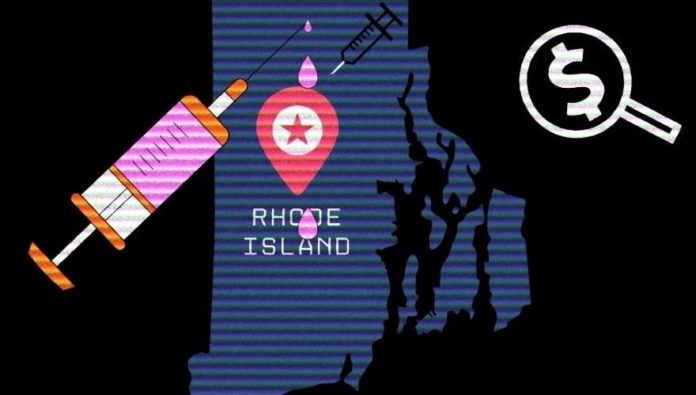Rhode Island Democrats want to punish the parents of children who refused to submit to the COVID vaccine mandates.
If passed, the bill will financially cripple individuals by doubling their personal income tax and requiring them to pay a monthly fine of $50.
State Senator Samuel Bell is the lead legislator backing the bill, which mandates all Rhode Island residents, workers, and taxpayers receive a COVID-19 vaccine as well as any subsequent boosters that the state’s director of the department of health shall require.
The bill’s text can be read here.
The law will apply to every person “of at least 16 years of age” as well as every person “under 16 years of age” and over 10 years of age.
In order to receive an exemption for a minor, an extremely strict requirement has been drafted into the bill. Parents will need to have three different doctors state on record that the child is “not fit for immunization” and the child themselves will have to place their signature on the form.
The state’s department of health will then be vested with the power to investigate each individual case and, without details provided as to how the determination might be made, may summarily reject the petition and reinstate monetary penalties on the minor’s guardians.
Employers, both public and private, will be tasked with enforcing the legislation as well. If an employee who is not strictly working remotely fails to provide proof of vaccine and his employer fails to terminate his employment, that employer will receive a monthly fine of $5,000 imposed on them.
Bell, who is personally motivated due to an ailing newborn son with a compromised immune system, was joined by Senators Mack, Acosta, Anderson, Seveney, and Mendes in introducing this bill.
To justify the legislation, Bell has pointed critics in the direction of a Boston Globe piece by journalist Dan McGowan that makes the claim that nearly 65% of residents support a statewide mandate. This number comes from a survey that was conducted by a ‘joint project’ known as the COVID-19 Consortium for Understanding the Public Police Preferences Across States.
What McGowan and Bell fail to mention is that the methodology of the survey—which was rubberstamped by Harvard, Northeastern, Rutgers, and Northwestern—states plainly that it is a ‘nonprobability sample‘ done using an online tool created for market research.
That’s a highbrow way of saying ‘this survey isn’t at all representative of the population and, in fact, it’s not even random sampling at all.’
It’s self-evident that this sort of legislation is a violation of Rhode Islanders’ individual liberty, but to justify it with a survey regulated by the same rules as a Whose Line? episode is beyond the pale.





